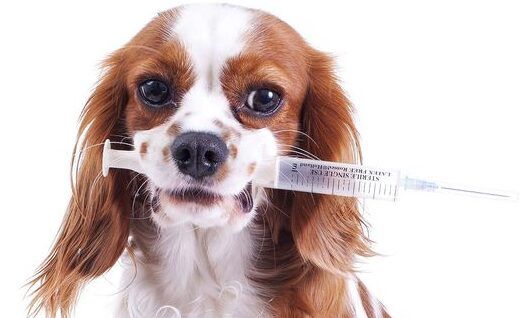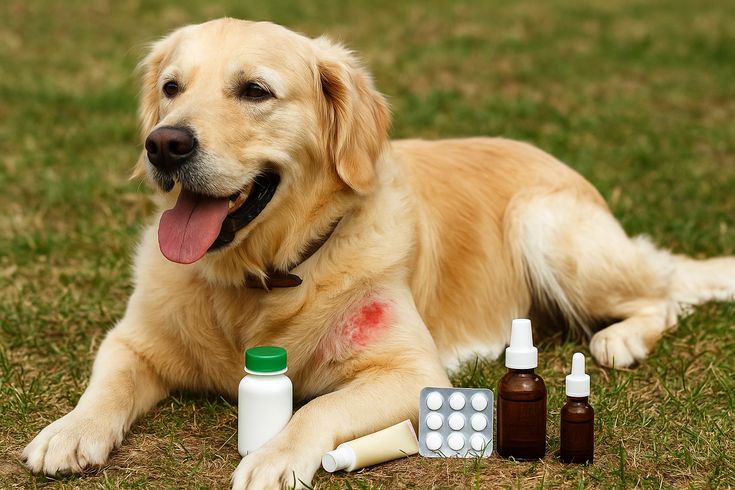10 Healthy Pet Care Tips to Keep Your Pet Happy and Thriving
Introduction: Why Healthy Pet Care Matters
Few things in life compare to the joy of caring for a pet. Whether you own a dog, cat, rabbit, or bird, pets are more than just animals—they are cherished members of the family. Pets bring us endless joy through their loyalty, affection, and companionship.
But just like humans, pets need the right care to live long and healthy lives. Healthy Pet Care is more than just feeding or walking them. It’s about looking after their nutrition, exercise, grooming, vet visits, mental stimulation, safety, and emotional well-being.
This guide will walk you through everything you need to know about raising a healthy, happy pet.
Nutrition: The Foundation of Pet Health
Choosing the Right Pet Food

Food is the first step in your pet’s overall health. A proper diet strengthens immunity, promotes a healthy coat, and provides the energy pets need each day. That’s why Healthy Pet Care always begins with the right nutrition.
When choosing food, consider your pet’s:
- Age: Puppies/kittens need growth-focused food. Seniors need softer, lower-calorie diets.
- Breed and body size: Larger breeds often benefit from diets that support joint health.
- Activity level: Active dogs or cats need more protein than low-energy pets.
- Health conditions: Pets with allergies or joint issues need special diets.
👉 Tip: Look for pet foods with real meat, vegetables, and whole grains. Avoid fillers, artificial colors, and preservatives.
Portion Control and Feeding Habits
- One of the biggest mistakes pet owners make is giving too much food, which can cause serious health issues. It leads to obesity and other health problems.
- Stick to vet-recommended portion sizes.
- Avoid feeding too many treats.
- Use a fixed feeding schedule instead of free-feeding all day.
Hydration
Pets need water just like we do. Always provide your pet with a bowl of clean, fresh water, making sure it’s easily accessible, especially during hot days. Dehydration can lead to serious health issues.
Regular Exercise: Keeping Pets Active and Fit
Why Exercise is Essential
Exercise is not only about keeping your pet slim. It is also a crucial part of Healthy Pet Care because it improves:
- Heart health
- Muscle and joint strength
- Mental sharpness
- Reduced anxiety and boredom
An active pet is less likely to become destructive or develop stress-related behavior.
Fun Ways to Exercise Pets
- Dogs: Stay healthy and happy with regular activities such as daily walks, fetch games, swimming, or agility exercises.
- Cats: Laser toys, feather wands, climbing towers
- Rabbits/Hamsters: Play tunnels, chew-safe toys, exercise wheels
- Birds: Flying time in a safe space, interactive toys
👉 Just 15–30 minutes of daily play can greatly improve your pet’s happiness and overall well-being.
Veterinary Care: Prevention Is Better Than Cure
Routine Vet Visits
Regular check-ups catch health problems early, which is why they are a vital part of Healthy Pet Care.
- Healthy adults: Once a year
- Puppies/kittens and seniors: Every 6 months or more
Vaccinations
Vaccines protect your pet from dangerous diseases.
- Dogs: Rabies, distemper, parvovirus, adenovirus
- Cats: Rabies, feline distemper, calicivirus
The right vaccination plan for your pet should always be recommended by your veterinarian.
Parasite Control
Ticks, fleas, and worms not only irritate pets but also spread harmful diseases, making parasite control essential. Use preventive medicines and regular deworming to keep your pet safe.
Dental Care
Dental health is often ignored, but it’s key to overall wellness. Good dental care is another important aspect of Healthy Pet Care.
- Brush your pet’s teeth with pet-safe toothpaste.
- Give dental chews.
- Ask your vet about professional cleanings.
Grooming and Hygiene: Looking Good, Feeling Great
Why Grooming Matters
Grooming is not just about appearance. It is also a key element of Healthy Pet Care because it helps:
- Prevent skin infections
- Reduce matting and discomfort
- Spot lumps, injuries, or parasites early
Grooming Basics
- Brushing: Reduces shedding, prevents tangles
- Bathing: Removes dirt and odor (once every 4–6 weeks for dogs)
- Nail trimming: Prevents overgrowth and pain
- Ear cleaning: Reduces infection risks
👉 Cats often self-groom, but brushing helps reduce hairballs.
Mental Health and Stimulation
Just like physical activity, mental stimulation is vital to keep pets engaged and emotionally balanced. Without it, they can become bored, anxious, or destructive. That’s why Healthy Pet Care also focuses on keeping your pet’s mind active.
Ways to Keep Pets Engaged
- Puzzle feeders and interactive toys
- Training sessions and new tricks
- Playdates with other pets
- Exploring new walking routes or safe outdoor spots
A stimulated pet is a happy pet.
A Safe and Pet-Friendly Environment
Pet-Proofing Indoors

Pets are naturally curious. To keep them safe, Healthy Pet Care requires you to pet-proof your home:
- Remove toxic plants
- Store cleaning supplies out of reach
- Secure trash bins
- Create safe, cozy resting areas
Outdoor Safety
If you have a yard:
- Make sure it’s securely fenced.
- For safety, never allow pets to wander alone near busy roads or swimming pools.
- For cats, consider safe outdoor enclosures.
Understanding Pet Behavior and Communication
While pets cannot speak, they express their needs and feelings clearly through their actions and body language. Observing them is a part of Healthy Pet Care that helps you identify problems early.
Warning Signs to Watch For
- Sudden aggression or hiding
- Excessive scratching or licking
- Refusal to eat
- Tiredness or unusual hyperactivity
These may signal illness, discomfort, or stress. Pay attention—early action saves lives.
Senior Pet Care
Older pets need extra love and adjustments. Special attention to seniors is a vital aspect of Healthy Pet Care.
Senior Pet Tips
- Schedule vet visits every 6 months
- Offer low-impact exercise like short walks
- Provide orthopedic bedding for comfort
- Adjust diets with joint supplements or softer food
- Be patient with slower movements and changes in behavior
👉 Most dogs and cats reach their senior stage around 7 years old, though bigger breeds tend to age sooner.
Emotional Well-Being: Love Above All
The most important part of Healthy Pet Care is love. Pets thrive when they feel secure, valued, and loved.
Spend time playing, cuddling, and simply being with them. Talk to your pet, reward good behavior, and make them feel like part of the family.
A loved pet is not only healthier but also emotionally balanced.
Healthy Pet Care Guidelines Every Owner Should Adhere to:
- Balanced Nutrition: To promote growth and immunity, give your pet a diet full of vital nutrients.
- Frequent Exercise: Engage your pet in interactive activities, playtime, or daily walks to keep them active.
- Hydration Is Important: To avoid dehydration, always offer clean, fresh water.
- Regular Veterinary Checkups: To identify health problems early, schedule routine veterinary visits.
- Vaccinations & Preventives: Timely vaccinations and parasite control can shield your pet from illness.
- Grooming & Hygiene: To keep your pet clean overall, brush their fur, cut their nails, and clean their ears.
- Dental Care: Oral health issues can be avoided with regular brushing or dental treatments.
- Safe & Clean Environment: Make sure your pet lives in a cozy, risk-free environment.
- Mental Stimulation: To keep your pet’s mind active, engage them in bonding exercises, training, and toys.
- Love & Attention: Provide your pet with emotional support, affection, and quality time.
Conclusion: A Healthy Pet is a Happy Pet
Healthy Pet Care is all about balance. With proper nutrition, exercise, vet care, grooming, mental stimulation, safety, and love, your pet will thrive. When you invest in your pet’s well-being, you are rewarded with loyalty, joy, and unconditional love that lasts a lifetime.
👉 Keep in mind, a pet’s good health is not accidental—it comes from regular care, love, and attention.
FAQs:
How regularly should my pet have a vet check-up?
Healthy pets generally need a yearly check-up, while younger and older pets may require more frequent visits. Puppies, kittens, and senior pets may need check-ups every 6 months or more often.
What is the best diet for pets?
Choose high-quality pet food made with real meat, vegetables, and whole grains. Avoid fillers, artificial colors, and additives. Always choose food that suits your pet’s age, size, and health condition for proper growth and well-being.
How much exercise does my pet need daily?
- Dogs: 30–60 minutes of walks or play
- Cats: 15–30 minutes of interactive play
- Small pets and birds: Safe daily activities to stay active and healthy
How can I keep my pet’s teeth healthy?
Brush with pet-safe toothpaste, give dental chews, and schedule professional cleanings at the vet. Good dental care prevents disease and keeps your pet’s breath fresh.
What vaccinations are essential for pets?
- Dogs: Rabies, distemper, parvovirus, adenovirus
- Cats: Rabies, feline distemper, calicivirus
Ask your vet about the right vaccination schedule for your pet.
How to know if my pet is overweight
If you can’t easily feel your pet’s ribs or see extra fat around the belly, your pet may be overweight. A vet can confirm and guide you with a proper diet plan.
What are the signs of stress or anxiety in pets?
Look for signs like hiding, too much barking or meowing, loss of appetite, or destructive behavior. Stress can often be reduced with exercise, play, and comfort.
At what age is a pet considered senior?
Most cats and dogs enter their senior stage at about 7 years old, though large breeds may age faster.
How often should I groom my pet?
- Brush pets several times a week (daily for long-haired breeds)
- Dogs usually need a bath every 4–6 weeks
- Cats mostly groom themselves, but benefit from regular brushing
How can I make my home safer for my pet?
Keep harmful plants and cleaning chemicals away, and set up a comfortable, safe spot where your pet can rest. Outdoors, always secure fences and enclosures to protect your pet.












Excellent Pets information 👍🏻